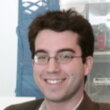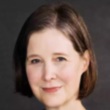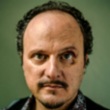Forest Dark: A Novel
(Libby/OverDrive eBook, Kindle)
Available Platforms
Description
National Bestseller • A New York Times Notable Book
Named Best Book of the Year by Esquire, Times Literary Supplement, Elle Magazine, LitHub, Publishers Weekly, Financial Times, Guardian, Refinery29, PopSugar, and Globe and Mail
"A brilliant novel. I am full of admiration." —Philip Roth
"One of America’s most important novelists" (New York Times), the award-winning, New York Times bestselling author of The History of Love, conjures an achingly beautiful and breathtakingly original novel about personal transformation that interweaves the stories of two disparate individuals—an older lawyer and a young novelist—whose transcendental search leads them to the same Israeli desert.
Jules Epstein, a man whose drive, avidity, and outsized personality have, for sixty-eight years, been a force to be reckoned with, is undergoing a metamorphosis. In the wake of his parents’ deaths, his divorce from his wife of more than thirty years, and his retirement from the New York legal firm where he was a partner, he’s felt an irresistible need to give away his possessions, alarming his children and perplexing the executor of his estate. With the last of his wealth, he travels to Israel, with a nebulous plan to do something to honor his parents. In Tel Aviv, he is sidetracked by a charismatic American rabbi planning a reunion for the descendants of King David who insists that Epstein is part of that storied dynastic line. He also meets the rabbi’s beautiful daughter who convinces Epstein to become involved in her own project—a film about the life of David being shot in the desert—with life-changing consequences.
But Epstein isn’t the only seeker embarking on a metaphysical journey that dissolves his sense of self, place, and history. Leaving her family in Brooklyn, a young, well-known novelist arrives at the Tel Aviv Hilton where she has stayed every year since birth. Troubled by writer’s block and a failing marriage, she hopes that the hotel can unlock a dimension of reality—and her own perception of life—that has been closed off to her. But when she meets a retired literature professor who proposes a project she can’t turn down, she’s drawn into a mystery that alters her life in ways she could never have imagined.
Bursting with life and humor, Forest Dark is a profound, mesmerizing novel of metamorphosis and self-realization—of looking beyond all that is visible towards the infinite.
Excerpt
Similar Titles From NoveList
Similar Authors From NoveList
Published Reviews
Booklist Review
*Starred Review* Krauss' entrancing and mysterious novel follows the strange journeys of two secular American Jews in Israel who are nearly hijacked by two fervent visionaries on missions of either discovery or delusion. Epstein is a man of means, power, and accomplishment who is baffling his staff and grown children by giving away his carefully acquired treasures and withdrawing from his life. Nicole, a writer unable to write and whose marriage is faltering, often feels as though she's in two places at once as she thinks about the multiverse theory and her sharp childhood memories of the monolithic Tel Aviv Hilton. Epstein is taken up by a rabbi planning a gathering of the descendants of King David. Nicole comes under the spell of an alleged friend of a cousin who recounts a wild story about Kafka's secret life in Palestine, which Krauss ties to a hilarious and poignant take on the real-life battle in Israel over Kafka's papers. As both seekers end up alone in the desert, Epstein in ecstasy, Nicole in wonder-struck peril, Krauss reflects with singing emotion and sagacity on Jewish history; war; the ancient, plundered forests of the Middle East; and the paradoxes of being. A resounding look at the enigmas of the self and the persistence of the past.--Seaman, Donna Copyright 2017 Booklist
Publisher's Weekly Review
Krauss's elegant, provocative, and mesmerizing novel is her best yet. Rich in profound insights and emotional resonance, it follows two characters on their paths to self-realization. In present-day Israel, two visiting Americans-one a young wife, mother, and novelist, the other an elderly philanthropist-experience transcendence. In alternating chapters, Krauss (The History of Love) first presents Jules Epstein, a high-powered retired Manhattan lawyer whose relentless energy has dimmed with his recent divorce, the death of his parents, and an inchoate desire to divest himself of the chattels of his existence. A change of POV introduces a narrator-a Brooklyn resident named Nicole who has a failing marriage, two young children, and writer's block. Both Jules and Nicole are vulnerable to despair and loss of faith, and trust in conventional beliefs. Although they never meet, similar existential crises bring them to Tel Aviv, where each is guided by a mysterious Israeli and experiences glimpses of a surreal world where they feel their true identities lie. A charismatic rabbi, Menachem Klausner, claims that Jules is a descendant of King David. Meanwhile, Nicole is lured into meeting Eliezer Friedman, a retired literature professor and perhaps an ex-Mossad agent who attempts to convince Nicole of a preposterous but increasingly alluring idea: that Franz Kafka didn't die in Prague but secretly was smuggled into Israel. He wants Nicole to write about the hidden life of this famous literary figure. Nicole's conversations with Friedman and Epstein's with Klausner about God and the creation of the world are bracingly intellectual and metaphysical. Vivid, intelligent, and often humorous, this novel is a fascinating tour de force. (Sept.) © Copyright PWxyz, LLC. All rights reserved.
Library Journal Review
In Krauss's (The Great House) first novel in seven years, two untethered American Jews experience parallel epic quests in Israel. One will die, the other will be transformed. The story is told in alternating chapters, and the pair never meet. Jules Epstein, a Manhattan lawyer so rich he can hang a "small Matisse" in his closet, at 68 is quickly divesting himself of his wealth. Nicole, who isn't given a last name, is the mother of two young sons, stagnating in a failed marriage in Brooklyn; she's convinced visiting the Tel Aviv Hilton of her youth will lift her writer's block. Both arrive in Israel seeking: Jules follows an enigmatic rabbi, eventually landing on the set of a King David documentary; Nicole endures a wild chase initiated by her cousin's alleged professor friend to discover Franz Kafka's purported Palestinian papers. With nuanced agility, Gabra Zackman voices the entire cast, matching gender, age, even national and regional accents. Her adaptability grounds Krauss's often ephemeral, surreal narrative, alchemizing the very "magic of that discordance" that is Krauss's examination of love, loss, and the fluidity of identity, into accessibly resonating storytelling. VERDICT Libraries should be well prepared in all formats for devoted patron demand. ["Wildly imaginative, darkly humorous, and deeply personal, this novel seems to question the very nature of time and space. Krauss commands our attention, and serious readers will applaud": LJ 7/17 starred review of the Harper hc.]-Terry Hong, Smithsonian BookDragon, Washington, DC © Copyright 2018. Library Journals LLC, a wholly owned subsidiary of Media Source, Inc. No redistribution permitted.
Kirkus Book Review
Two American visitors to Israel undergo separate but similar metamorphoses in this cerebral novel by Krauss (Great House, 2010, etc.).As the story opens, Jules Epstein, a wealthy retired divorc, has gone missing in Israel, leaving behind a host of questions: why did he trade in his Fifth Avenue apartment for a decrepit seaside hovel? Why did he choose to spend a chunk of his fortune to help fund a biopic about King David? And what prompted the "slow unfurling of self-knowledge" that led him to abandon his well-off life? Meanwhile, in an alternate set of chapters, an unnamed young novelist has come to the Tel Aviv Hilton hoping to kick-start her next book and escape her crumbling marriage. There, she's contacted by a man soliciting her help on a film based on an unpublished Kafka play and who also has some hard-to-believe news to deliver about Kafka himself. Jules and the novelist never directly connect, but they share similar existential predicaments: both are struggling to reconcile American and Israeli cultures and wrestle with religious and philosophical questions. Jules falls under the spell of a rabbi who opines on the connection between global and personal transformation, while the novelist revisits Kafka and Freud's concept of unheimlich, a sort of world-weary anxiety and dread. Krauss, as ever, writes beautifully about complex themes, and she has a keen eye for the way Israel's culture, slower but more alert to violence, requires its American characters to reboot their perceptions. Her big questions don't always provoke big effects, though, and much of the drama she establishes for her two characters feels dry, with her riffs on Kafka and Judaism more essayistic than novelistic. And though the novel never promised high drama, its low boil makes it harder to inspire the reader to draw connections within her braided narrative. An ambitiously high-concept tale that mainly idles in a contemplative register. Copyright Kirkus Reviews, used with permission.
Library Journal Reviews
A National Book Award finalist, Anisfield-Wolf Award winner, Granta Best Young American Novelist, New Yorker Twenty Under Forty, and New York Times best-selling author, Krauss tells the story of larger-than-life Jules Epstein. Now retired, and with his parents dead and his marriage over, he gives away most of his possessions and heads to Israel, where he becomes involved with a dynamic American rabbi planning a reunion of King David's descendants. Meanwhile, a young American novelist arrives at a Tel Aviv hotel and is offered the project of a lifetime. With a 150,000-copy first printing and a 15-city tour.
Copyright 2017 Library Journal.Library Journal Reviews
In her complex new novel, National Book Award finalist Krauss (The Great House) suggests why it's been seven years since fans have heard from her. As depicted here, the writer's life, one of isolation, even selfishness, is the opposite of society's norms, and Krauss looks to Franz Kafka, Jewish scholars, and the Bible to examine the writer's responsibility to self and to history. At the heart of the story are two characters, secular Jews in the throes of transformation, shedding their pasts but unsure about their futures. At 68, Jules Epstein, a larger-than-life millionaire businessman and collector of beautiful things, is lightening his load. Divesting himself of wealth and possessions, he travels to the Hilton in Tel Aviv, Israel, to meet with potential recipients of his generosity. Our first-person narrator was actually conceived at the hotel and often returns there, in this case to escape the confines of home and begin a novel. Each character falls under the intrusive spell of strangers who act as guides through the dense, dark forests of Jewish mysticism and literary theory. Will their two lives collide? VERDICT Wildly imaginative, darkly humorous, and deeply personal, this novel seems to question the very nature of time and space. Krauss commands our attention, and serious readers will applaud. [See Prepub Alert, 3/8/17.]—Sally Bissell, formerly with Lee Cty. Lib. Syst., Fort Myers, FL
Copyright 2017 Library Journal.Publishers Weekly Reviews
Krauss's elegant, provocative, and mesmerizing novel is her best yet. Rich in profound insights and emotional resonance, it follows two characters on their paths to self-realization. In present-day Israel, two visiting Americans—one a young wife, mother, and novelist, the other an elderly philanthropist—experience transcendence. In alternating chapters, Krauss (The History of Love) first presents Jules Epstein, a high-powered retired Manhattan lawyer whose relentless energy has dimmed with his recent divorce, the death of his parents, and an inchoate desire to divest himself of the chattels of his existence. A change of POV introduces a narrator—a Brooklyn resident named Nicole who has a failing marriage, two young children, and writer's block. Both Jules and Nicole are vulnerable to despair and loss of faith, and trust in conventional beliefs. Although they never meet, similar existential crises bring them to Tel Aviv, where each is guided by a mysterious Israeli and experiences glimpses of a surreal world where they feel their true identities lie. A charismatic rabbi, Menachem Klausner, claims that Jules is a descendant of King David. Meanwhile, Nicole is lured into meeting Eliezer Friedman, a retired literature professor and perhaps an ex-Mossad agent who attempts to convince Nicole of a preposterous but increasingly alluring idea: that Franz Kafka didn't die in Prague but secretly was smuggled into Israel. He wants Nicole to write about the hidden life of this famous literary figure. Nicole's conversations with Friedman and Epstein's with Klausner about God and the creation of the world are bracingly intellectual and metaphysical. Vivid, intelligent, and often humorous, this novel is a fascinating tour de force. (Sept.)
Copyright 2017 Publisher Weekly.Reviews from GoodReads
Citations
Krauss, N. (2017). Forest Dark: A Novel . HarperCollins.
Chicago / Turabian - Author Date Citation, 17th Edition (style guide)Krauss, Nicole. 2017. Forest Dark: A Novel. HarperCollins.
Chicago / Turabian - Humanities (Notes and Bibliography) Citation, 17th Edition (style guide)Krauss, Nicole. Forest Dark: A Novel HarperCollins, 2017.
Harvard Citation (style guide)Krauss, N. (2017). Forest dark: a novel. HarperCollins.
MLA Citation, 9th Edition (style guide)Krauss, Nicole. Forest Dark: A Novel HarperCollins, 2017.
Copy Details
| Collection | Owned | Available | Number of Holds |
|---|---|---|---|
| Libby | 2 | 1 | 0 |



































